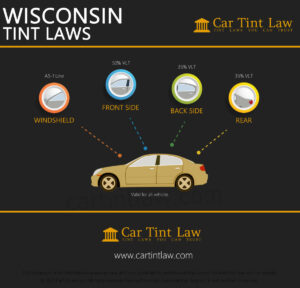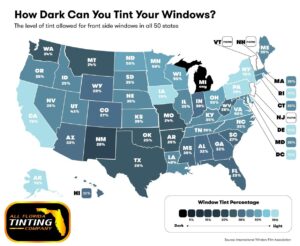As an Amazon Associate, I earn from qualifying purchases
Car window tinting can add style and privacy to your vehicle. But, before you tint your windows in Massachusetts, you need to know the laws.
Understanding Massachusetts car tint laws is crucial for avoiding fines and ensuring your vehicle stays road-legal. In Massachusetts, car tint laws are specific and must be followed. These laws regulate how dark or reflective your window tint can be. Different rules apply to different types of vehicles and windows. Following these laws can save you from legal trouble. Knowing the rules helps you make informed decisions when tinting your car windows. This guide will break down the key points of Massachusetts car tint laws, so you can stay compliant and enjoy your tinted windows worry-free.
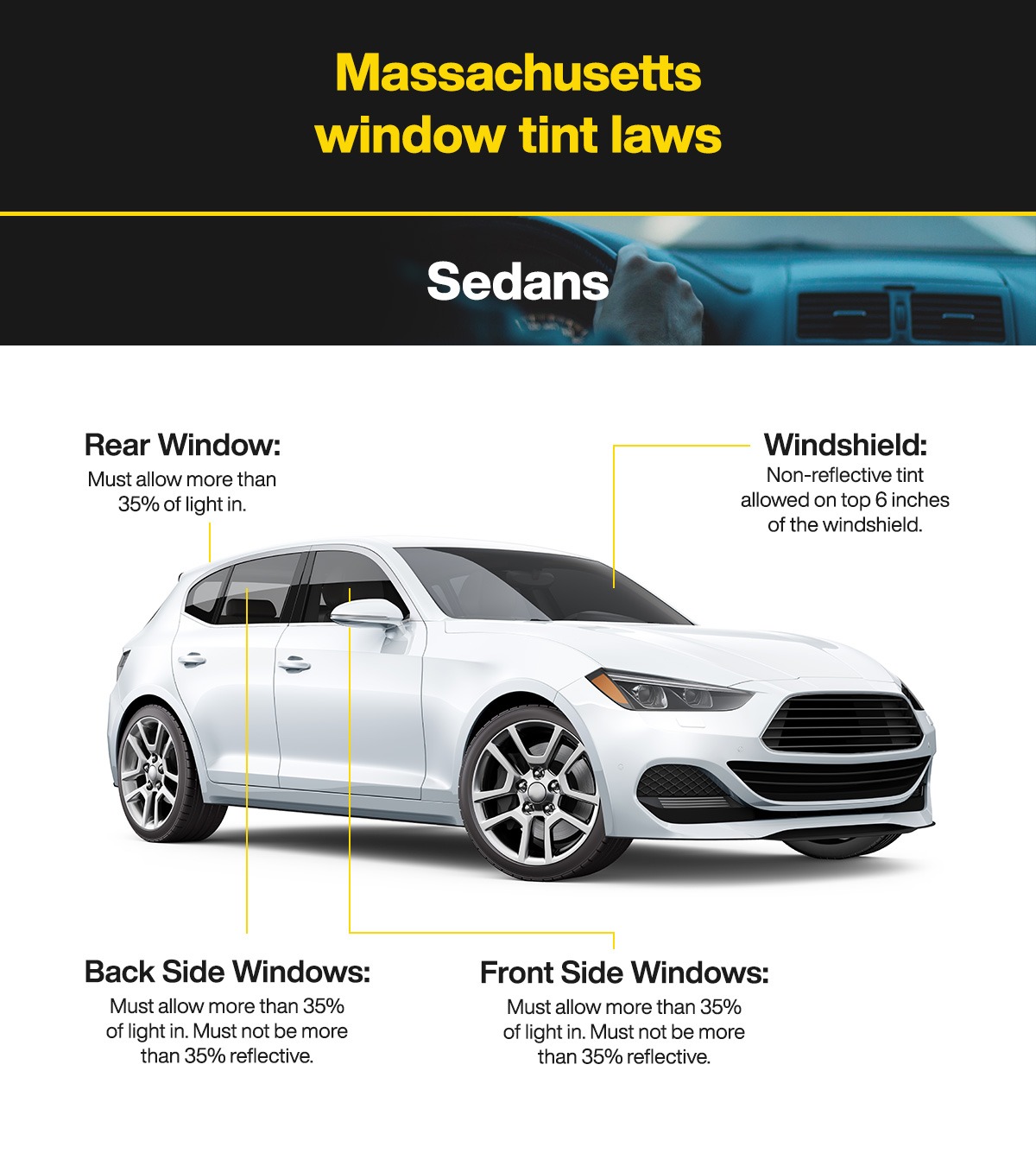
Credit: pelicarwindowtinting.com
Introduction To Massachusetts Car Tint Laws
Understanding Massachusetts Car Tint Laws is crucial for drivers in the state. Car tinting can enhance privacy, reduce glare, and protect from UV rays. However, there are specific regulations that must be followed. These laws ensure safety and compliance with state standards. This guide will walk you through the purpose of these laws and the importance of adhering to them.
Purpose Of Tint Laws
The primary goal of tint laws is to ensure safety on the roads. Dark tints can hinder visibility, making it difficult for drivers to see outside. This can lead to accidents and endanger lives. The laws also help law enforcement officers. They need to see inside vehicles during traffic stops. This visibility helps in assessing situations better and maintaining safety. Additionally, these laws protect consumers from installing excessively dark or reflective tints that may cause issues.
Importance Of Compliance
Compliance with Massachusetts Car Tint Laws is not just about avoiding fines. It’s about ensuring the safety of everyone on the road. Non-compliance can lead to penalties, including fines and vehicle inspections. Repeated violations may result in higher fines and other legal consequences. Moreover, adhering to these laws ensures your car remains in good standing. It prevents any issues during vehicle inspections or registration renewals. Staying within the legal limits also helps in maintaining the resale value of your vehicle. Buyers prefer vehicles that comply with local regulations, ensuring a smoother sale process.
Legal Tint Percentages
Understanding Massachusetts car tint laws is important for every driver. Legal tint percentages vary depending on the part of the car. Knowing these rules can help you avoid fines and keep your car street-legal.
Windshield Tint Regulations
The windshield can have a non-reflective tint. The tint must be above the manufacturer’s AS-1 line. This line is usually found near the top of the windshield. Tinting below this line is not allowed.
Side And Rear Window Limits
Front side windows must allow more than 35% of light in. This means the tint cannot be darker than 35%. For rear-side windows, the same rule applies. They must also allow more than 35% of light in.
Rear windows follow similar rules. They must let more than 35% of light pass through. This keeps visibility clear and ensures safety on the road.
Medical Exemptions
Massachusetts car tint laws allow medical exemptions for individuals with specific health conditions. These exemptions permit darker window tints than are normally allowed by state regulations.
Some people in Massachusetts need tinted car windows for medical reasons. These exemptions help protect their health. The state has specific rules for those who qualify. Understanding these rules can help you apply correctly.
Eligibility Criteria
To get a medical exemption, you must have a medical condition. Conditions like skin cancer or lupus qualify. Your doctor must certify your need for tinted windows. The doctor’s note should clearly state your condition. It should also explain why you need the exemption.
Application Process
First, get a note from your doctor. Make sure it includes all necessary details. Next, fill out the medical exemption application form. You can find this form on the Massachusetts RMV website. Submit the form and doctor’s note to the RMV. Once approved, you will receive your exemption certificate. Keep this certificate in your car at all times.
“`
Penalties For Non-compliance
Massachusetts car tint laws are strict. Failing to follow these laws can lead to serious penalties. Understanding these penalties is crucial for every vehicle owner in the state.
Fines And Penalties
Non-compliance with car tint laws can result in fines. First-time offenders may face a fine of up to $250. Repeat offenders can expect higher fines. The penalties increase with each offense. Here’s a quick breakdown:
| Offense | Fine Amount |
|---|---|
| First Offense | Up to $250 |
| Second Offense | Up to $500 |
| Third Offense | Up to $1,000 |
Impact On Vehicle Inspection
Car tint laws also affect vehicle inspections. Vehicles must pass inspections to stay road-legal. Illegal window tint can lead to a failed inspection. This means you cannot legally drive your car until the issue is fixed.
Inspection stations will check your window tint. If the tint is too dark, they will fail your car. You must then remove or replace the tint. Only then can you pass the inspection.
Vehicle owners should always ensure their tint complies with state laws. This saves you from fines and ensures your car passes inspection.
Tips For Choosing Legal Tint
Massachusetts car tint laws are strict. Choosing the right tint involves understanding these laws. Ensuring your tint is legal can save you from fines. Here are some tips to help you choose legal tint.
Finding Certified Installers
It’s important to find a certified installer. Certified installers know the state laws. They ensure the tint meets the legal requirements. Use the following tips to find a certified installer:
- Check online reviews to see what others say.
- Ask for certification proof before hiring.
- Visit their shop to see their work quality.
- Compare prices but don’t compromise on quality.
Selecting The Right Tint
Selecting the right tint is crucial. Massachusetts law specifies the allowable tint percentages. Here is a table to help you understand:
| Window | Legal Tint Percentage |
|---|---|
| Front Side Windows | 35% |
| Back Side Windows | 35% |
| Rear Window | 35% |
| Windshield | 6 inches |
Ensure your tint falls within these limits. Choose quality materials. Cheap tints fade quickly. Quality materials last longer and look better. Consult with your installer about the best options. They can provide samples for you to compare. This ensures you make an informed choice.
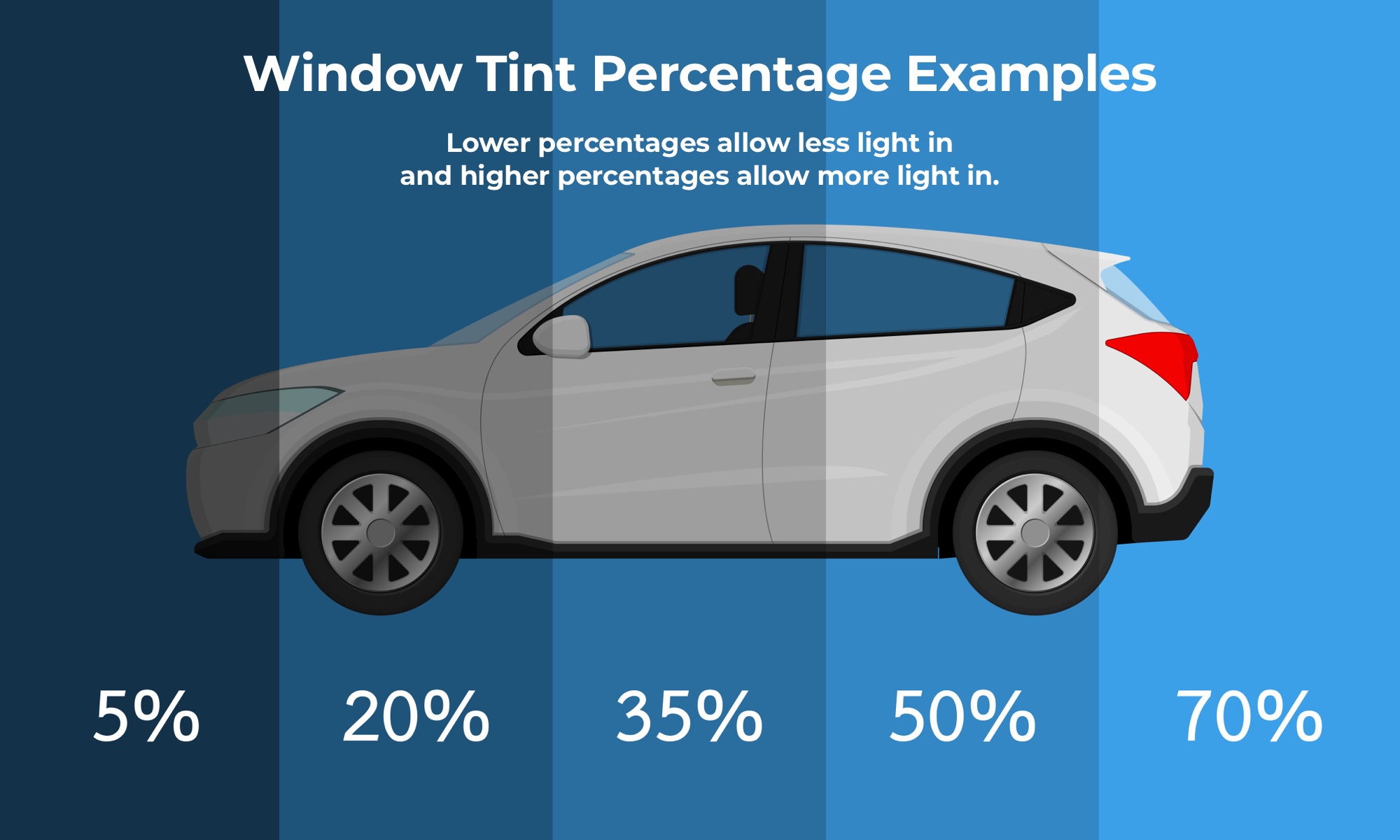
Credit: capecodtintguy.com
Maintaining Tinted Windows
Maintaining tinted windows in your car is essential for keeping them in good condition. Proper care helps in extending the life of the tint and ensuring compliance with Massachusetts car tint laws. Below are some tips on how to maintain your car’s tinted windows effectively.
Cleaning And Care
Regular cleaning is crucial to maintaining tinted windows. Use a mild, ammonia-free cleaner to avoid damaging the tint. Ammonia-based cleaners can cause the tint to peel or discolor.
- Use a soft cloth or sponge to clean the windows.
- Wipe in one direction to avoid streaks.
- Dry the windows with a microfiber cloth.
Avoid using sharp objects or rough materials. These can scratch the tint. Regular cleaning keeps your windows looking clear and fresh.
Checking For Wear And Tear
Periodically check your tinted windows for any signs of wear and tear. Small damages can escalate if not addressed promptly. Here’s how to inspect your windows:
- Look for any bubbles or peeling edges.
- Check for any discoloration or fading.
- Inspect for any scratches or cracks.
If you notice any issues, it’s best to consult a professional. Prompt repairs can prevent further damage and ensure compliance with tint laws.
By following these simple tips, you can keep your car’s tinted windows in top shape. Regular maintenance helps in preserving the tint’s appearance and functionality.
Resources For Further Information
Understanding Massachusetts car tint laws is crucial for vehicle owners. To ensure you comply, it’s essential to have accurate information. This section provides resources to help you navigate these laws effectively.
State Dmv Guidelines
The Massachusetts Department of Motor Vehicles (DMV) offers detailed guidelines on car tint laws. These guidelines cover the allowed tint percentages for different windows. They also explain the penalties for non-compliance. To access these guidelines, visit the official DMV website. You can find comprehensive charts and diagrams there. These resources help you understand the legal requirements better.
Consulting Legal Experts
Sometimes, the regulations can seem complicated. In such cases, consulting legal experts is a good idea. Lawyers specializing in traffic laws can provide valuable insights. They can clarify any doubts you have. Legal experts also help if you face penalties for non-compliance. They offer guidance on how to address such issues. Contacting a legal expert ensures you are well-informed. It helps you avoid legal troubles related to car tinting.
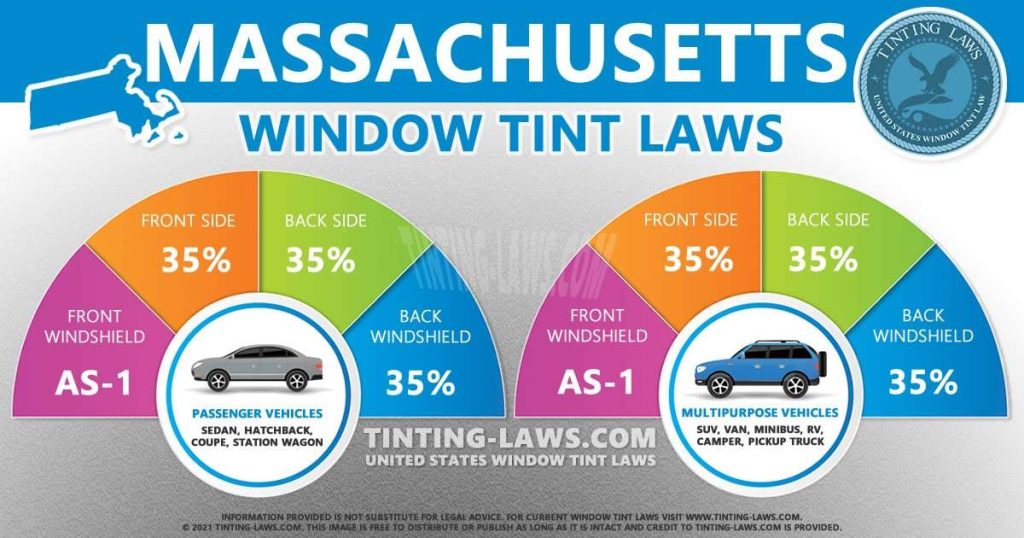
Credit: www.tinting-laws.com
Frequently Asked Questions
What Is The Legal Tint Limit In Massachusetts?
In Massachusetts, the legal window tint limit is 35% for all side and rear windows. This means only 35% of light must pass through.
Are There Medical Exemptions For Car Tint In Massachusetts?
Yes, Massachusetts allows medical exemptions for car tint. You must provide a medical reason and receive approval from the Registry of Motor Vehicles.
Can You Tint Your Windshield In Massachusetts?
In Massachusetts, you can only tint the top six inches of your windshield. The rest of the windshield must remain untinted.
What Are The Penalties For Illegal Tint In Massachusetts?
Penalties for illegal tint in Massachusetts include fines and possible vehicle inspection failure. Ensure your tint complies with state laws to avoid penalties.
Conclusion
Understanding Massachusetts car tint laws helps drivers stay compliant. These regulations ensure safety and visibility for everyone. Remember, darker tints may lead to fines. Always check the latest rules before tinting your windows. This will help you avoid penalties and ensure safe driving.
Following the law keeps everyone safe on the road. Stay informed and drive with confidence.
As an Amazon Associate, I earn from qualifying purchases

